

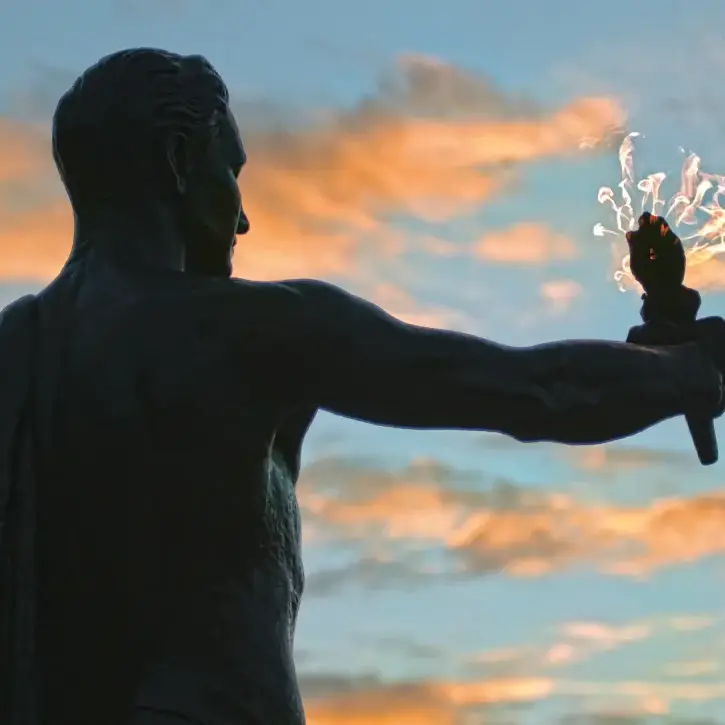
Classics Faculty Share Expertise in Varied Channels
Faculty members from the Department of Classics showcase their research and expertise by presenting at and co-organizing conferences, crafting insightful articles, and engaging in academic dialogues and professional exchanges. Following are a few recent examples.
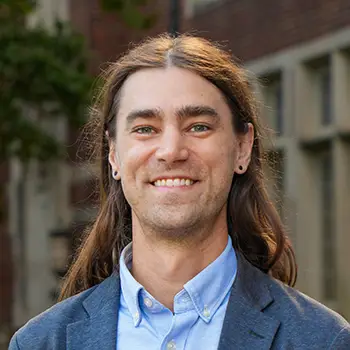
Assistant Professor Charles Kuper presented a paper on the text and image in the Menologion of Basil II at a double-panel during the October 2024 Byzantine Studies Conference in New York City. He and his co-organizer won funding for the papers from the Mary Jaharis Center for Byzantine Art and Culture.
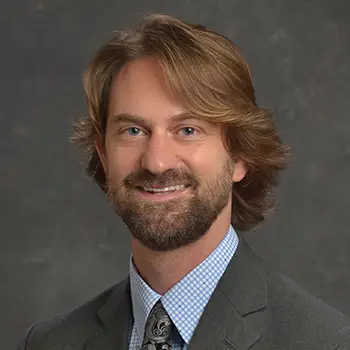
Associate Professor Justin Arft was a respondent to one of four papers on new computational approaches to the study of Homer and ancient Greek texts. Arft makes his appearance starting at about the 1:40 mark in the video from the Homer and Artificial Intelligence Workshop.

Assistant Professor Sam Blankenship wrote a response for the online Herodotus Helpline, an organization based in Scotland and devoted to the study of the historian Herodotus of Halicarnassus. Blankenship answered the question, “How did Herodotus know so much about what was happening in Persia?”
2023-2024 Brought New Experts to Campus
We had a full slate of visiting speakers last year, who shared with us their exciting work in classical reception and archaeology. We are very grateful to them for enriching the lives of our students and faculty. Here is the honor roll:
Rutledge Memorial Lecture
Stephanie McCarter
University of the South, Sewanee
“Elizabeth Colomba and Classical Mythology” (Sept. 28)
Haines-Morris Lecturer
Emilia Oddo
Tulane University
“Don’t Trust That Octopus! Marine Style Pottery and Its Ominous Role in Minoan Crete” (Oct. 30)
17th Harry C. Rutledge Memorial Lecture in Archaeology
Cemal Pulak
Institute of Nautical Archaeology, Texas A&M University
“The Uluburun Shipwreck and Late Bronze Age Maritime Trade” (April 18)
51st annual program of the East Tennessee Society of the Archaeological Institute of America
Dylan Bloy, secretary-treasurer of our local Archeological Institute of America (AIA) chapter, organized five events. In addition to Pulak’s Rutledge Archaeology Lecture and Oddo’s Haines-Morris Lecture, we were fortunate to host one lecturer sponsored by the national AIA society:
Bice Peruzzi (Rutgers University), “Creating Permanent Memories? Tomb Violation and Collective Memory in Pre-Roman Apulia” (April 2)
In addition, Alison Damick (UT Laboratory of Environmental Archaeology) presented her work on “Eastern Mediterranean Micro-Ecologies: Preliminary Discussion of Geoarchaeological Research on the Holocene of Northern Lebanon” (February 27)
Ann Robinson-Craig Retires
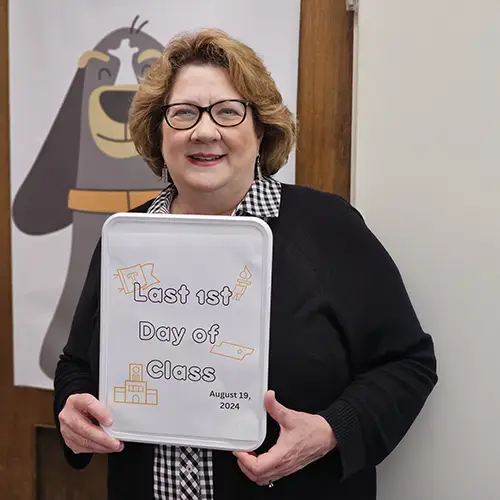
After 32 years of devoted service, our stalwart and beloved Ann Robinson-Craig has taken well-deserved retirement.
She served mostly as the chief budget director of the College of Arts and Sciences, and in the last two years as the business manager of the shared administrative services team assisting the Departments of Classics, Philosophy, and Religious Studies, always giving it her all, and then some.
A history major, she is a fervent believer in the mission of the College of Arts and Sciences, and she has dedicated her career to making it flourish. The entire college has benefited greatly from her wisdom, expertise, and immense knowledge of UT’s finances and administration. During her two short years as our business manager, she has shaped the shared services team into a cohesive, efficient unit.
In addition to all this, she has endowed together with her husband, Professor Emertius Chris Craig, scholarships to support the training of future Latin high school teachers. We are immensely grateful for all she has done for us. It is no exaggeration to say that throughout her career, Ann has been saxum nostrum (“our rock”). For her amazing accomplishments, she has received the Chancellor’s 2023 Volunteer Spirit Award, the highest honor given by UT to a staff member. We wish her and Chris many happy years in retirement.
UT Classics Alumni Update
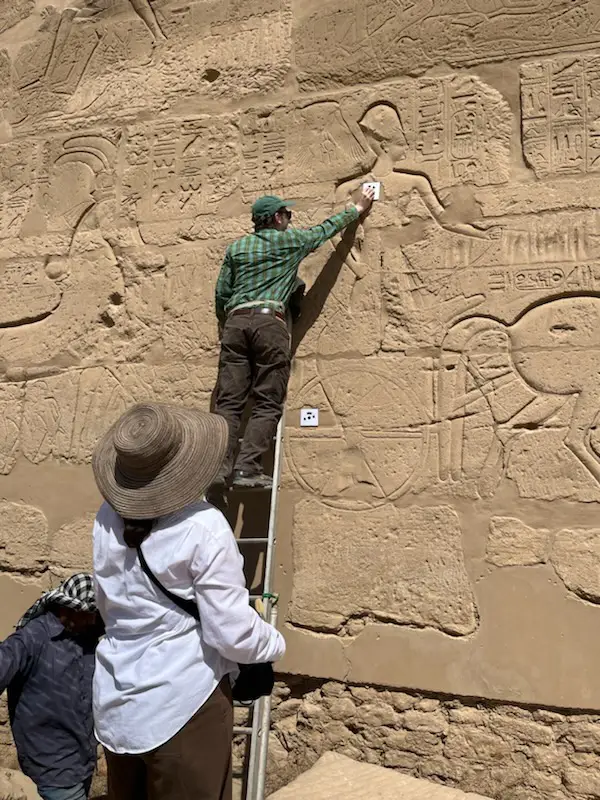
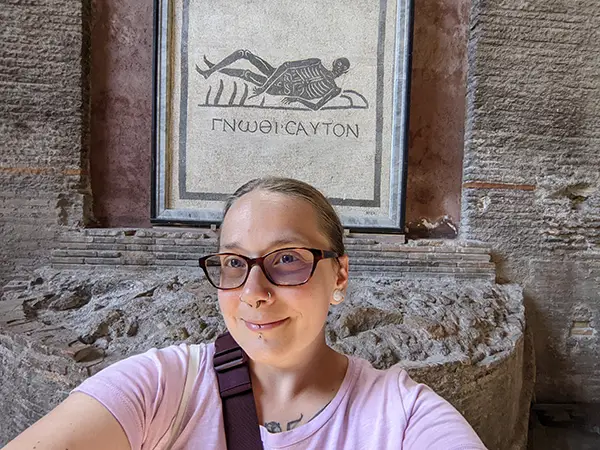
Houston Boyd (’24) has been accepted to the University of Illinois Urbana-Champaign’s graduate program in classics with full funding. Warmest congratulations!
Alanna Heatherly (’19), a PhD candidate at the University of Michigan, was accepted into the 2024 Classical Summer School of the American Academy in Rome with full funding. Needless to say, she had the time of her life. While there, she met fellow Knoxvillian Andrew Riggsby, Lucy Shoe Merrit Professor at the other UT (Austin), and many other luminaries in classics.
Magister Bobby Huddleston (’83), our most senior active student/colleague, is now in his 40th year teaching at Father Ryan High School. Perhaps Magistra Susan Neas Hankins (’86), only in her 38th year with the Latin program at Greeneville High School, will take up the challenge and ditch her plans to retire at the end of this year?
Two alumnae won competitive regional and national awards in support of their K-12 Latin teaching: Magistra Julie Holt (’00) of Powell High School was awarded a Rudolph Masciantonio grant from the Classical Association of the Middle West and South, and Magistra Lizzi Kersey (’07) won the Coffin Fellowship from the National Society for Classical Studies and the Golden Anchor Award for Outstanding Teaching at Farragut High School. We could not be more proud of you both!
Magistra Chloe Lovelace (’15), who joined the Metropolitan Museum in New York as an intern in 2015, is now a collections specialist in ancient Near Eastern art. She is currently assisting with the renovation of the Met’s Near Eastern galleries. Great going, Chloe!
Magister Andrew Montgomery (’22) has started the master’s program in Mediterranean archaeology at UT. He is writing his thesis on Minoan peak sanctuaries under the supervision of Tristan Barnes and Aleydis Van de Moortel.
Magister Cooper Phillips (’22), a PhD student in Egyptology at the University of Memphis, has been helping to produce facsimiles of some Ramesses II’s reliefs on the southern exterior wall at the Great Hypostyle Hall at Karnak. He also has his own project, creating 3D models of various scenes and reliefs with photogrammetric software. Currently he is producing a model of Ramesses’ Hittite Peace Treaty from the walls of the Cour de la Cachette. As a proof, he sent a photo of him attaching a sensor to Ramesses II’s chest. We are in awe, Cooper, and, yes, well, slightly envious as well.
Walter Price (’23), an MA student in Ancient Mediterranean Studies at the University of Missouri, Columbia, has started to teach undergraduate Latin. He also participated in his first professional conference, presenting his research at the 2023 meeting of the Southern Section of the Classical Association of the Middle West and South in Greensboro, North Carolina. Way to go, Walt!
Adelle Rosendale (’24) is pursuing a master’s degree in education and a license to become a Latin high school teacher. She is currently interning with Magister Sandy Hughes (’05) at Bearden High School, truly a first-rate role model!
Zoe Smith (’22) has been accepted into the MA program of the Center for Middle Eastern Studies at the University of Chicago with partial funding. In addition to Mesopotamian and Anatolian archaeology, she is expanding her language arsenal by taking Hittite this fall and Turkish this spring. It is wonderful to see you on your way, Zoe!
Magistra Mary Walter (’24) is teaching math and Latin at Pigeon Forge High School. She has been invited to present a paper at the annual conference of the Tennessee World Languages Teachers Association. What a great start, Mary, and welcome to the ranks of Tennessee’s Latin teachers!
Warmest congratulations to Vicki Weaver (’92), chair of our Classics Advisory Council, for her new position as vice president for human resources at SouthEast Bank in Knoxville.
Finally, former Department head Chris Craig was surprised in his cardio class to hear another participant reciting the Aeneid to himself. Bradley Grindstaff, now a financial fraud investigator and accountant, memorized his Vergil for Craig in 1988 and has used it for calming perspective ever since. A great reunion!
Let us know what you are doing by going to this link for submitting alumni news!
UT Classics Faculty Building on Expertise
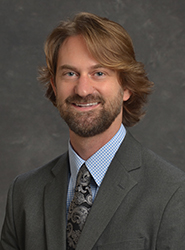
Justin Arft is continuing work on his second book project, tentatively titled Humanizing the Hero: Transgression, Normativity, and Homer’s Audience, and he has recently given talks at the University of Missouri, University of Bristol, and the Classical Association of the Middle West and South (CAMWS) on topics related to this project. He also has a contract with Oxford University Press for his forthcoming chapter on Odyssey book 7 for the Oxford Critical Guide to Homer series.
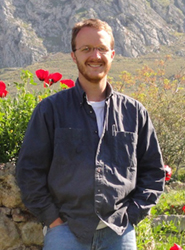
Tristan Barnes celebrated the publication of his co-written article “On the Theme of Katasterismoi—An Attic White-Ground Lekythos with the Figure of Krotos,” which dealt with a very early depiction of the constellation Sagittarius in the form of a satyr. He hopes to put that experience to good use in his new course, CLAS 389: Ancient Astronomy, which will survey conceptions and uses of the night sky throughout the ancient Mediterranean. He also looks forward to a study abroad program on Roman Britain that he is developing with Reema Habib for the May mini-term.
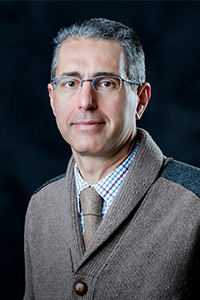
Salvador Bartera published a book review in Gnomon and an article (his first in Italian!) on Tacitus in the Renaissance. He also published, with Jessica Westerhold, an article on Latin pedagogy in Classical Outlook. He was honored to receive a Denbo Center for Humanities and the Arts fellowship for 2024-2025 and the Franklin Research Grant from the American Philosophical Society. Both awards will be used to work on his book project on Stefonio’s Flavia, a Latin play that he is editing and translating. On this topic, he gave a paper at the Warburg Institute in London in May. In November, he attended the Tennessee World Language Teaching Association (TWLTA) meeting, where he delivered the keynote address at the Tennessee Classical Association luncheon.
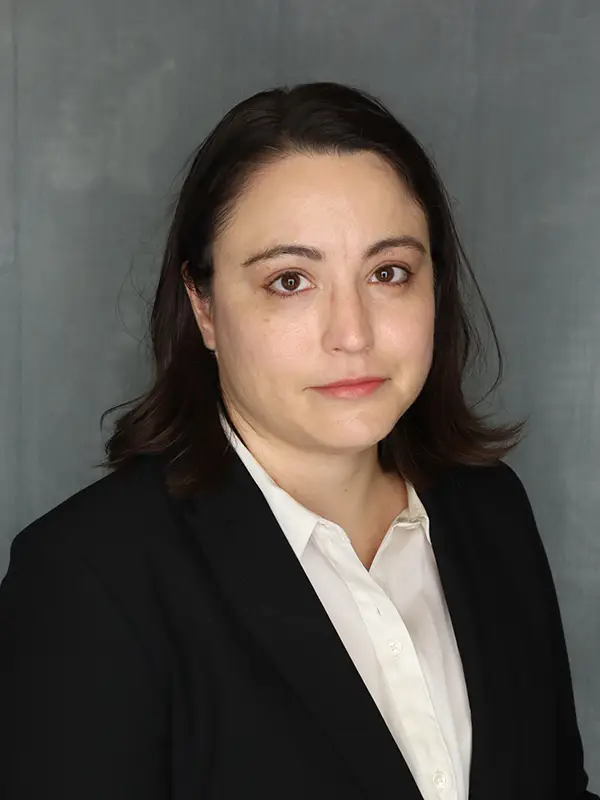
Sam Blankenship greatly enjoyed her first year at the university. In addition to teaching, she continues to think and write about Achaemenid Persian historiography and its influences on biblical texts such as Ezra-Nehemiah and Esther, as well as on the self-presentation of Alexander the Great and the diadochi. In November traveled to the Society of Biblical Literature annual meeting in San Diego to present an invited review of a fascinating forthcoming book on Jewish scribal responses to Achaemenid imperial ideology.
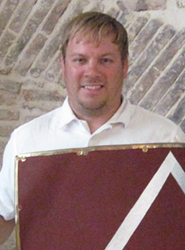
Dylan Bloy is excited to add the upper level Greek archaeology course to his portfolio this year. This summer he oversaw what may well be the final season of excavation at a Roman villa site in Vacone, Italy, where his team excavated the last four rooms of the domestic core of the villa, replete with colorful mosaics. They proved that the villa’s peristyle garden contained a meter-deep pool in its latest phase, and found a sequence of early Imperial alterations to the Republican bath. He and his co-directors are hard at work on a final publication volume summarizing their 11 seasons of field work at the site. In addition to publishing two articles about work at the villa, he also gave a talk about Vacone to the National Junior Classical League convention held in Knoxville last summer.
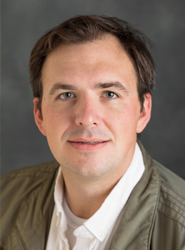
Stephen Collins-Elliott co-authored a chapter detailing the state of the field on the applications of geophysics in archaeology in Morocco and Tunisia. He also published a package for the open-source statistical software platform R titled lakhesis: Consensus Seriation for Binary Data, which provides a graphical interface for archaeologists to seriate contexts and finds assemblages (putting elements into a sequence on the basis of similarity). Last spring he served as acting department head and faculty sponsor of the 12th Annual Tennessee Undergraduate Classics Research Conference.
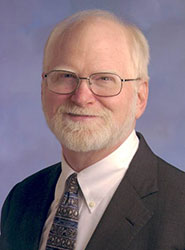
Chris Craig, professor emeritus, has enjoyed another year of relentless reading, decorous exercise, and travel to both coasts, places in between, and across the pond. He is deeply touched by the outreach of students from each of his four decades at UT. He is excited that three former students, magistra Abigail Braddock Simone (’02) of Houston High School, magister Sandy Hughes (’05) of Bearden High school and magistra Mary Walter (’22) of Pigeon Forge High School (recipient of the first Craig teaching scholarship!), will be presenting in November at our annual state language teachers conference (TWLTA), a program organized by Simone as incoming president.
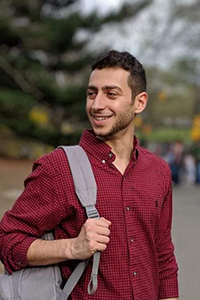
Lorenzo Del Monte continues to write on the economic and political history of archaic Greece. He is now working on a publication that explores the development of the Greek state apparatus through early laws establishing economic value equivalences. He also works on Linear B and Roman law, and is increasingly interested in classical reception, especially in contemporary art, movies, and poetry. Del Monte plans to offer a Roman law course this spring, while also mentoring students in Linear B through individualized studies.
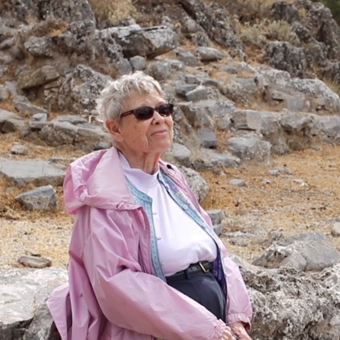
Professor Emerita Geraldine Gesell was happy to see another volume of the Kavousi final publication appear. She continues to spend about six months a year at the Institute for Aegean Prehistory Study Center for East Crete in Greece, researching and writing her own volume of the Kavousi publication.
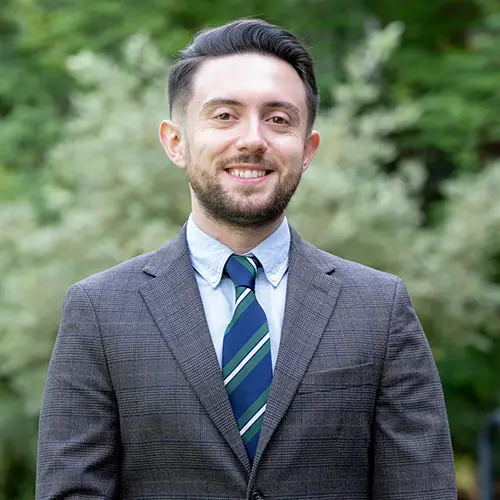
Nikola Golubović is delighted to have joined the UT Department of Classics. He specializes in Latin literature of the first three centuries AD, with a particular focus on rhetorical education. His article on the ancient use and transmission of the “Minor Declamations”—a collection of Roman school exercises—is set to appear in Classical Philology, and he recently wrote about Horace’s Satires for a publication in his native Serbian. He continues to cultivate his interest in historical linguistics by working on Vlach, another language he grew up speaking.
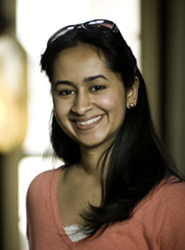
Reema Habib has attained the rank of teaching associate professor and has accepted a role as the department’s Latin program and Latin Placement Exam coordinator. She continues to research ancient magic, while also developing an experiential pedagogy paper for the CAMWS annual meeting in 2025. She is excited to offer a Roman Britain study abroad trip with Tristan Barnes during the May mini-term, and to further develop her outreach efforts within the local school system. Beyond the classroom, Reema is particularly excited to work with the department’s Access and Engagement Committee on its second annual Ancient Games Night this year, and to introduce a new hands-on activity about mummification at the McClung Museum’s annual Can You Dig It event.
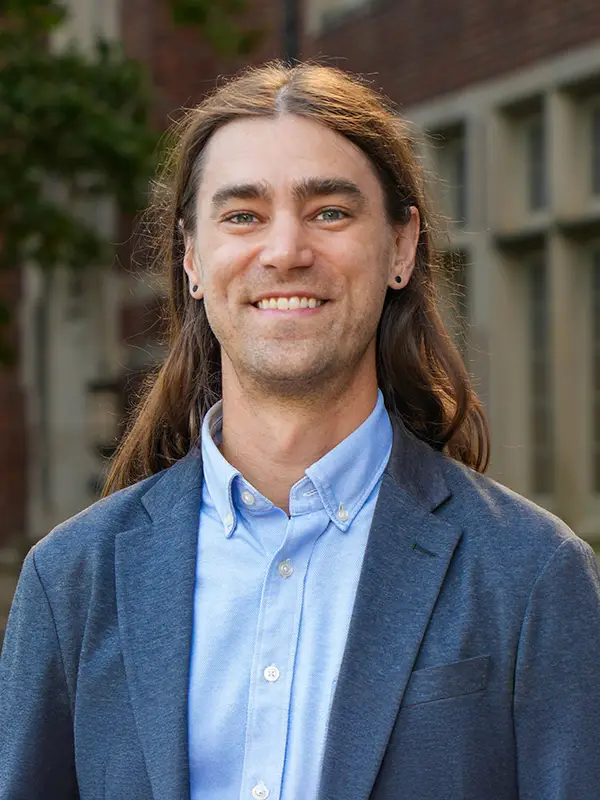
Charles Kuper is beyond thrilled to join the Department of Classics! He works on Latin and Greek literature from late antiquity through the Middle Ages. The Christian cult of the saints is one of his central interests. This has been a busy research year. He published a book chapter on the satirical biography of Theodoulus the Stylite (Svenska Forskningsinstitutet i Istanbul, 2024) and a short article on the Roman monk Evagrius (Brill, 2024). In September, he submitted his book The Menologion of Basil II to Harvard University Press; this includes the first critical edition, commentary, and translation of a luxurious Byzantine calendar of the saints. Most recently, he was a postdoctoral fellow at La Sapienza Università di Roma, where he worked on the manuscript tradition of the Latin grammarian Priscian.
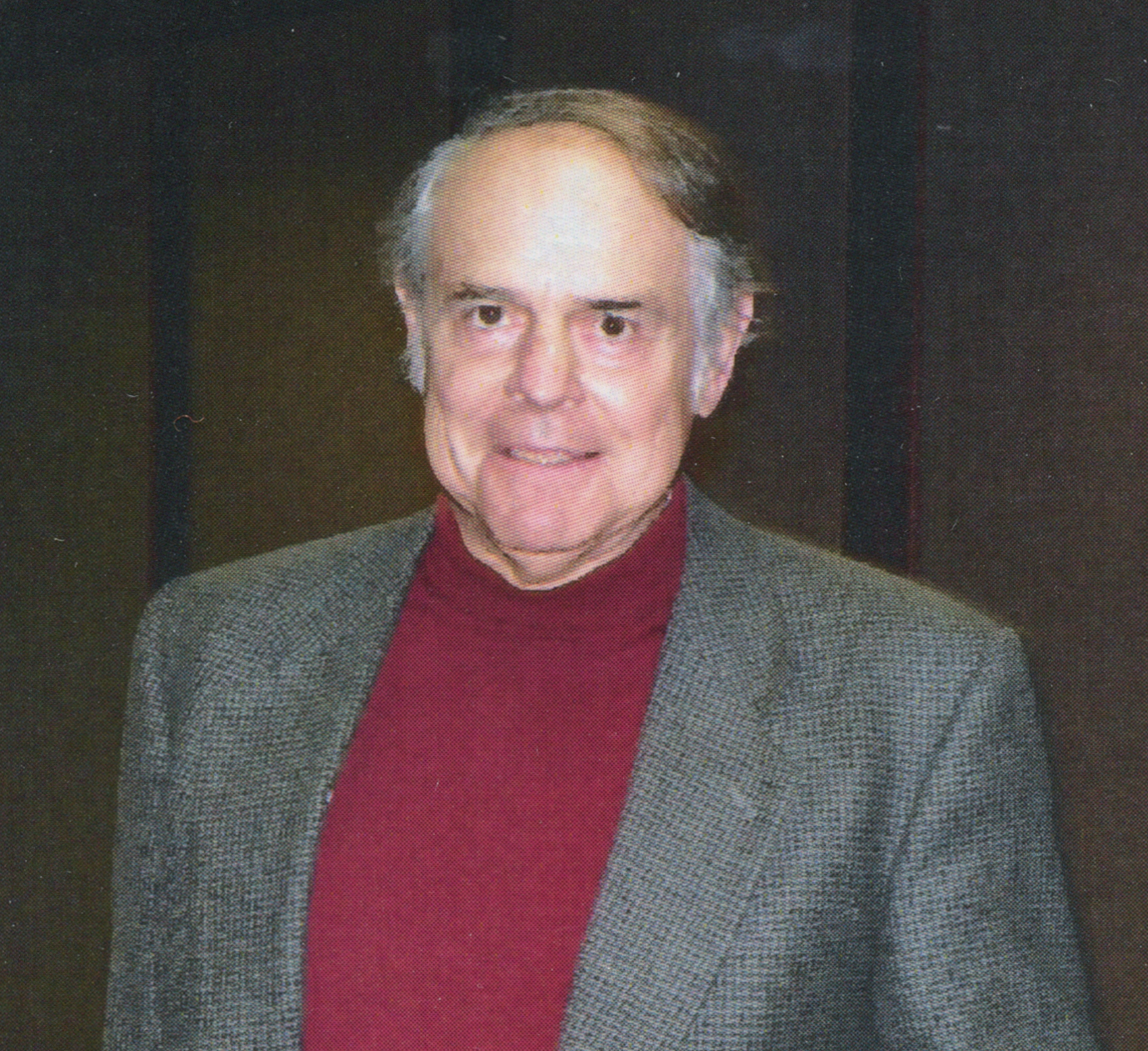
Research professor Merle Langdon co-published an article in the American Journal of Archaeology on an archaic graffito of a building identified as a Hekatompedon, which he found in the Attic countryside. This supports the hypothesis that the Hekatompedon was a temple and not an open space. This article was picked up widely in the Greek press and by the British Independent.

Professor Emeritus Robert Sklenář has fully recovered after treatment for non-Hodgkins lymphoma, and the cancer is in remission. He thanks his colleagues for their support and assistance, especially Aleydis Van de Moortel, Tina Shepardson, and Chris Craig. He is returning to scholarship with a conference paper titled “Horace, Odes 4.7 and Rainer Maria Rilke’s ‘Herbsttag’: Two Perspectives on the Place of Humanity in the Cosmic Cycle,” delivered at the 104th Anniversary Meeting of CAMWS—The Southern Section in San Antonio, Texas; he will present an expanded version in October 2025 at the National University of La Plata, Argentina.
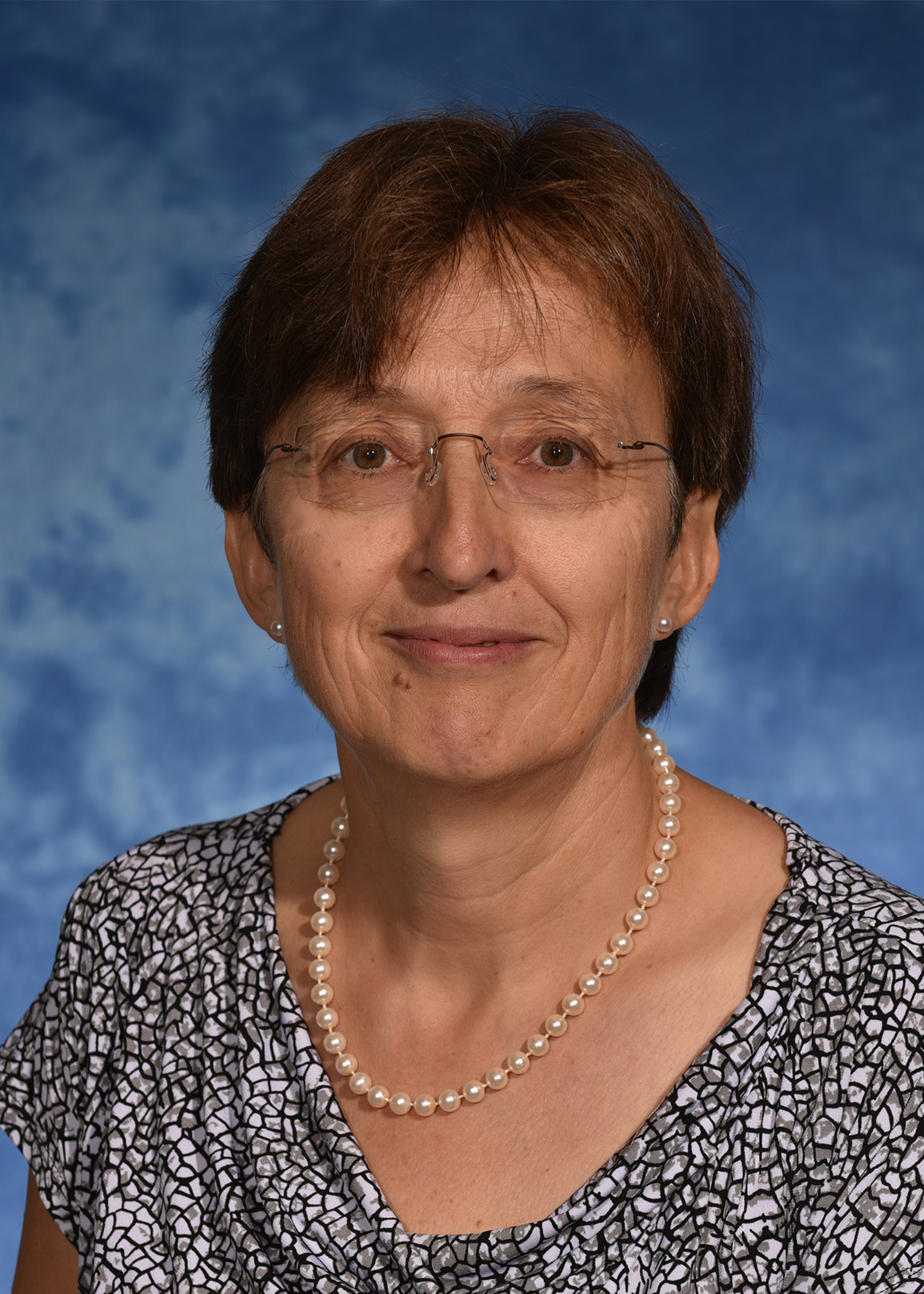
Aleydis Van de Moortel continues to be thrilled to lead such a wonderful group of students, faculty, staff, and advisory board members. In the spring she enjoyed a research leave to work on the final publication of the Mitrou Archaeological Project. She published an article on a potter’s kiln at Mitrou, and she co-published an article on the relative and absolute chronology of Mitrou, which support a long duration of the Late Helladic I phase and the recent scientific redating of the Theran eruption to the 16th century BCE. She participated in national and international conferences, and gave invited lectures at the University of Münster (online) and the University of Catania.
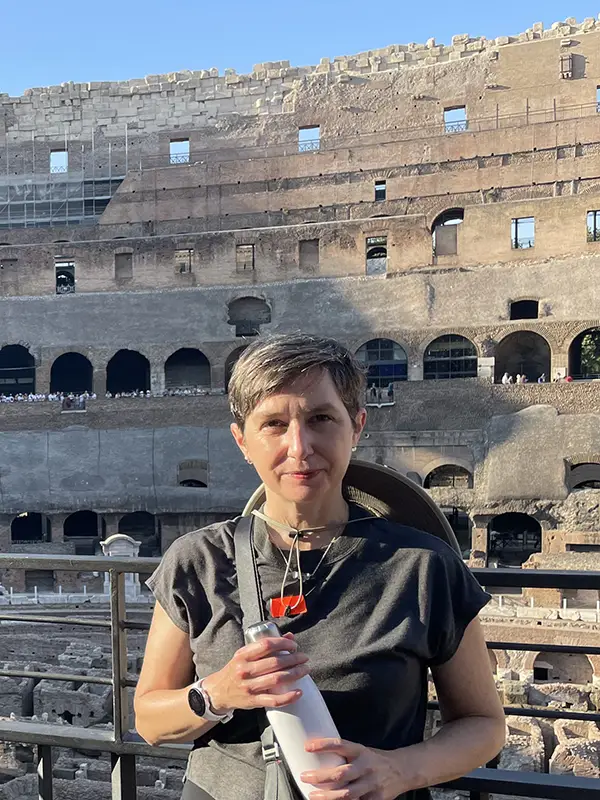
Jessica Westerhold started 2024 by presenting a paper with Salvador Bartera, at the annual meeting of the Society for Classical Studies (now published in Classical Outlook). She was thrilled to teach Augustan poetry last spring. Her students shared their translations at UT’s first Translation Symposium. Westerhold spent the summer diligently researching for her next monograph, Representations of Happiness in Latin Elegy. During the National Junior Classical League convention, Westerhold was honored to address the opening assembly and to give a talk on one of her favorite poets, Sulpicia. This spring, Jessica is looking forward to Latin Day XLII.
Students Honored at Awards Banquet
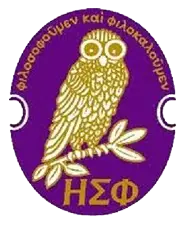
At the end of each year, the department holds a celebration and awards recognition for our students. Associate Professors Justin Arft and Stephen Collins-Elliott served as the masters of ceremonies.
Our 2024 Eta Sigma Phi initiates were: Robert Greene, Priscilla Owens, Drew Piper Jr., Katie Emler, Madeleine Shroades, Landon Bryan, Apeksha Sawarkar, Wyatt Smith, Lela Flowers, and Dorothea Stansell. Our leadership team for Eta Sigma Phi and the Classics Club, Ethan Peebles and Desirae Cordell, remain in place and have done a stellar job organizing our activities and membership.
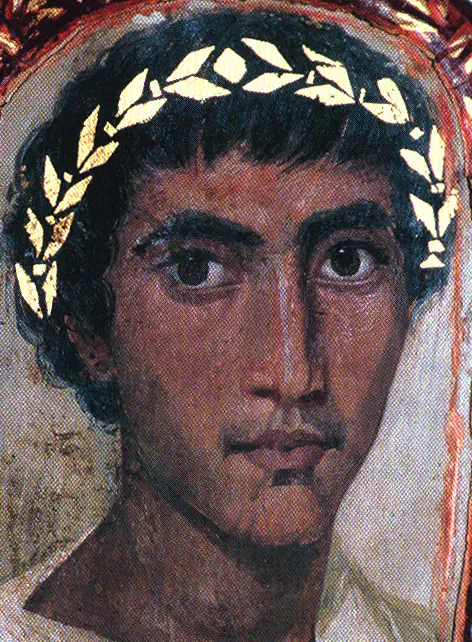
Several students were recognized for their outstanding academic work during the 2024 academic year, or have been awarded scholarships for 2024-2025. Ethan Peebles received our signature Arthur H. Moser Memorial Scholarship for language students, and CC Hazelton our signature Albert Rapp Memorial Scholarship for archaeology and civilization students. Landon Bryan and Henry Greene received Haines-Morris Scholarships, and Mak Pentz a Haines-Morris Award. Evan Shannon received a departmental Poikilia scholarship. Shannon also was honored with a national Snowden scholarship of the American School of Classical Studies at Athens for participation in a 2024 summer seminar in Greece, as well as with a UT Commission for Disability Undergraduate Student Award.
Several students were awarded departmental travel scholarships: Landon Bryan received an Athena travel scholarship, Henry Greene an S.D. Martin Excellence Scholarship, and Isaac Buck, Natalie Newsome, Mak Pentz, and Ben Smelser Haines-Morris travel scholarships, which enabled them to participate in the Hesperides project in Morocco.
Two of our students were recognized as Volunteers of Distinction: Houston Boyd in classical civilization, and Adelle Rosendale in Latin. The College of Arts and Sciences also recognized outstanding graduates for the May 2023 commencement: Houston Boyd for classical civilization, Adelle Rosendale for Latin, and Tony Caldwell for classical archaeology. In addition, the department gave senior awards to Tony Caldwell in classical archaeology, Christina Onolfo in classical civilization, and Adelle Rosendale in Latin.
Henry Greene also received our department’s Classical Association of the Middle West and South (CAMWS) Award for Outstanding Accomplishment in Classical Studies, and Tony Caldwell was given the department’s Dedication and Service Award.
Many of our students excelled at the CAMWS National Latin Exam 2023-2024. For Intermediate Latin, Grant Williams placed in the cash award group (the highest); Alexander Wyrick and Joshua Adedokun placed in the book award group (the second highest). Noah Hornback, Lela Flowers, Lauren Shinn, Houston Boyd, and Kaitlyn Emler earned certificates of commendation. For Advanced Latin, Henry Greene placed in the cash award group (the highest).
The Department of Classics heartily congratulates the students who were recognized for their hard work and devotion to the study of classics. We are very proud of them and of all our graduates!
UT Students Present Papers at Classical Association
Two of our students—Henry Greene and Walter Price—wrote excellent research papers for Assistant Professor Jessica Westerhold’s Latin class and were encouraged by her to present their work at the 2023 annual meeting of the Classical Association of the Middle, West, and South—Southern Section (CAMWS-SS) in Greensboro, North Carolina, Nov. 3-4, 2023. Both received CAMWS Manson Stewart Travel Scholarships, and Greene was given in addition generous funding by Professor Emeritus Chris Craig from his Faculty Public Service Award to cover the expenses of conference travel and stay.
Greene, a senior in classics and philosophy, and a prospective Latin teacher, spoke about, “Problems in Epicurean Readings of Horace.” Price, an alumnus of our department (’23) and now a graduate student at the University of Missouri, Columbia, gave a talk titled, “Poetic Uses of Structure and Meter in Catullus 108, 51, and 23.” Our congratulations to Henry and Walter for this significant achievement.
Both students share their experiences presenting for the first time at an academic conference.
Henry Greene:
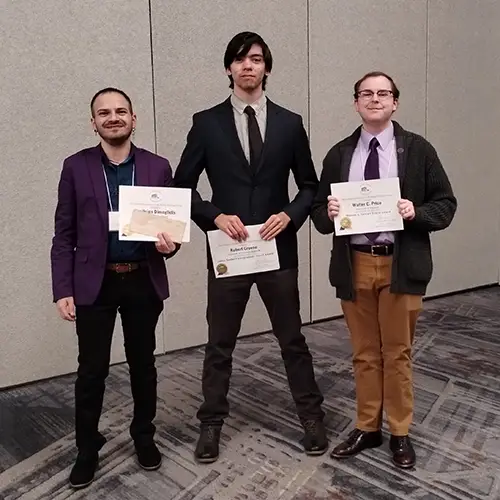
“It was exhilarating to see what the process of academic research is actually like—as something done both through the papers presented, and the discussions and Q&As they spurred afterwards. I feel that attending the conference and seeing this firsthand has reaffirmed my commitment to apply to graduate school. I also feel very motivated to submit more abstracts and, hopefully, attend later CAMWS Southern Section conferences, or other conferences in the near future. Additionally, while I was already interested in Latin pedagogy and possibly teaching Latin at some point, seeing certain presenters talk about (and demonstrate) the use of spoken Latin in middle school/high school classes has made me more excited about that as well.
“There were many fascinating presentations, but I think my favorite part was interacting with so many interesting and knowledgeable people, and getting a feel for the shape of the world of classics. It’s always a pleasure to get to talk to those who are passionate about the same things that you are.”
Walt Price:
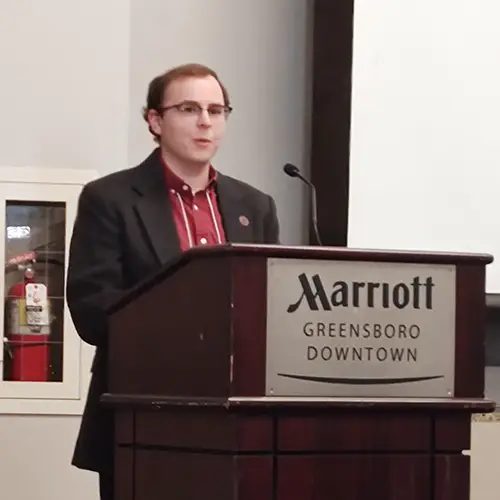
“This experience was definitely a big step in my professional career, and I think it’s helped me come to a better understanding of what my goals actually look like. I was asked a few times whether I’d be turning my talk into an article, and this has certainly encouraged me to do so. It puts into perspective the necessity of feedback before the publication of such an article as well. Having had the chance to present my research, I feel more inclined to continue doing so, and I’m really excited that I’ve been accepted to speak at the larger CAMWS conference in April.” A number of the questions and comments after various papers gave me some good examples of what kind of feedback is helpful versus what kind isn’t helpful, so I’ll be taking that forward and trying harder to give helpful feedback to other scholars.
“The best part of the whole experience was how much passion everyone had in their work and the joy they had in sharing it with others.”
Undergraduate Research Conference Sets New Record
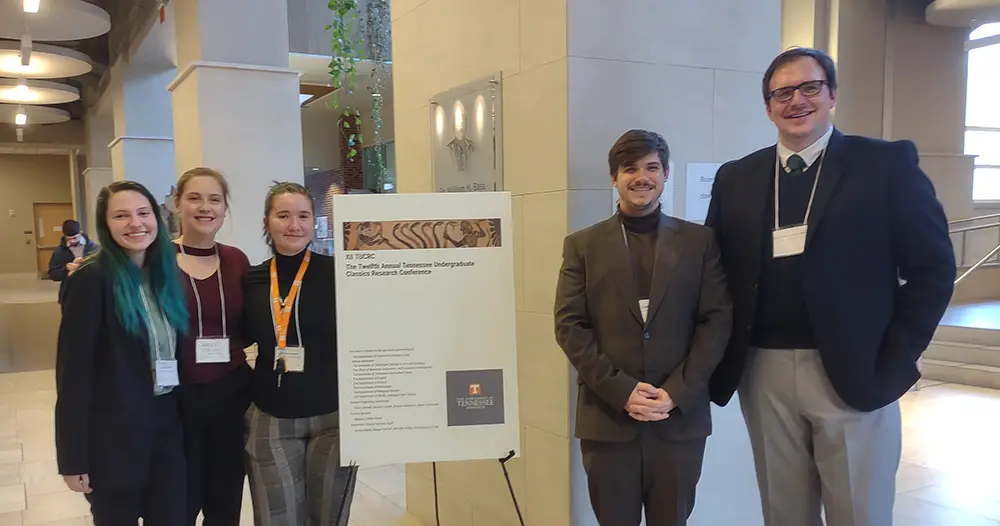
After a year’s hiatus because of short-staffing among our faculty, our 12th undergraduate research conference was held at Strong Hall on February 24, 2024. The conference received generous support from alumna Bettye Beaumont (’74) as well as from our Classics Enrichment Fund; the College of Arts and Sciences; UT’s Office of Research, Innovation, and Economic Development; the Denbo Center for Humanities and the Arts; and the Departments of English, History, Philosophy, Religious Studies, and World Languages and Cultures.
This year’s conference was impeccably organized by classics students Tony Caldwell, Desirae Cordell, Natalie Newsome, and Adelle Rosendale under the guidance of Associate Professor Stephen Collins-Elliott. To our relief, the one-year hiatus had not caused classics students elsewhere to forget about us. On the contrary: We received 55 abstracts from around the country and welcomed 36 student-speakers—both absolute records. After a warm welcome address by Robert Hinde, interim executive dean of the College of Arts and Sciences, Associate Professor Trevor Luke of Florida State University delivered the Beaumont Keynote Lecture titled, “Master and Commander: the Roman Emperor and the Sea.” Luke’s presentation was penetrating and yet accessible, and it generated a lively Q&A among the audience.
Our 36 student participants came from 22 colleges and universities throughout the US, from as far away as Dartmouth College, Boston University, the University of California (UC) Los Angeles, and UC San Diego. They presented research on a wide variety of topics such as, “From Bulls to Beetles: Rethinking Sacrificial Animals in the Iconography of Bronze Age Crete” and “The Role of Family Structure in the Spread of Indo-European Languages in Europe” to “Utilizing Sentiment Analysis Algorithms in the Study of Identity in Ancient Greek and Latin Literature.” Once again, we were happily surprised at the wide range of research topics and the high quality of the papers as well as by the audience’s keen attention and interesting questions.
Clearly, our conference is attracting very bright young scholars who are deeply engaged with classics. It is now quite common for us to meet promising graduate students and young faculty in the field who experienced their first scholarly conference at UT and remember us warmly.
Classics faculty presided over nine well-attended panels. During the lunch hour, Associate Professor Justin Arft, Assistant Professor Sam Blankenship, and Luke held an optional professionalization workshop on “Classics as a Career and Beyond.”
The presenters included UT students Victoria Padgett, Henry Greene, George Livesay, and Evan Shannon.
Collins-Elliott expresses his deep gratitude to his colleagues for generously giving their time. He also acknowledges the hard work, initiative, and efficiency of the student organizers, and a special thank you to Ann Robinson-Craig (business manager) and Jessica Black (events and communications coordinator), Mitchell Harper (travel coordinator), and Megan Beeler (space coordinator) for their logistical support and very helpful administrative oversight.
Students Explore Greece with Study Abroad
Evan Shannon (Haines-Morris and Poikilia scholarships)
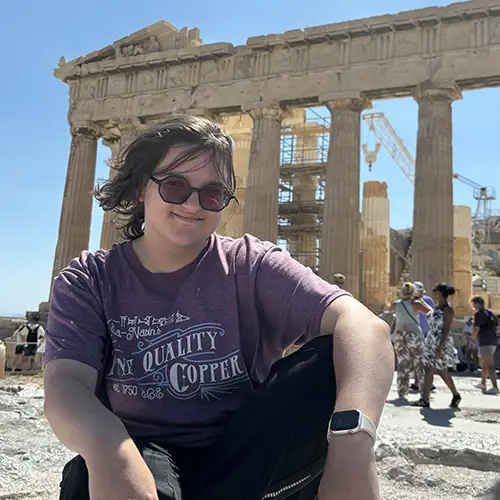
This summer I attended the American School of Classical Studies at Athens (ASCSA) Summer Seminar II “Alexander to Actium: The Archaeology of Hellenistic Greece,” led by Professors Thomas Rose and Jake Morton. We toured nearly all of mainland Greece, visiting 37 archaeological sites and 18 museums. The program included 20 students from diverse backgrounds, including undergraduate students, graduate students and professors.
One of my primary interests within classics is disability studies, particularly in relation to current academia and classical reception. I found great value in seeing archaeological evidence for sanctuaries to Asklepius, god of healing, as well as in observing how museums chose to organize and present the evidence. My favorite sites were the Nekromanteion and the Sacred Oak of Dodona. These sites have persisted in ritual and public interest, and I find the continuity across the ages beautiful.
My participation in the ASCSA seminar was partially funded by the Society for Classical Studies’ Frank M. Snowden Jr. Undergraduate Scholarship, with additional support from a Haines-Morris Travel Scholarship and a Poikilia Scholarship from UT’s classics department. As a first-generation, low-income student, I have always dreamed of studying abroad, but it wasn’t until this summer that that dream was actualized.
Ben Smelser (Haines-Morris scholarship)
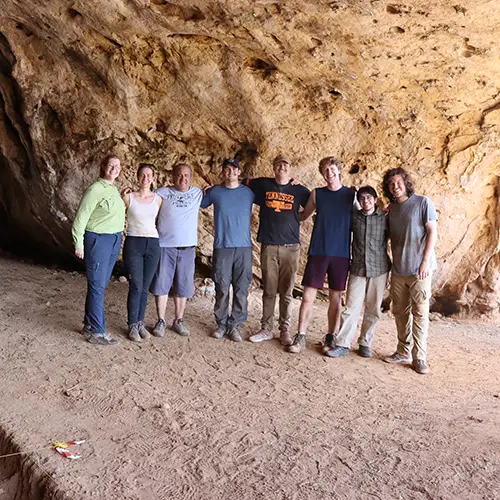
This summer, I was extremely fortunate to participate in the excavation of the Megalos Peristeres cave in Crete under the direction of Professor Thomas Strasser of Providence College, Rhode Island. The cave was only a few kilometers away from the University of Crete in Rethymno, and I was lucky enough to get to know some of its students. Crete was absolutely stunning, and the culture was rich and beautiful. I will never get over the views of the mountains every morning when I woke up, and the sunsets of the Aegean Sea towards the end of the day.
Digging in a cave was quite the experience. My major is in classics, and I study mainly the Iron and Hellenistic Ages. However, the goal of this dig was to find evidence of late Pleistocene to early Holocene humans in support of the theory that those early humans inhabited Crete. This was my first excavation, so I really didn’t know what to expect; little did I know digging in caves is hard because of the difficulties differentiating stratigraphic levels. The soil was rough and rocky, and honestly, it was hard to determine different soil compositions. However, we managed to get it done.
The best part of the experience was the people I got to work with and learn from. Professor Strasser and the co-director, Assistant Professor Miriam Clinton, taught me so much about the practice of archaeology as well as the subject of prehistoric humans. The students were phenomenal, and we are still friends. I very much thank the UT classics department for giving me a Haines-Morris Travel Scholarship to make this experience happen.